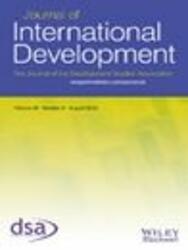Journal Article
Corruption and the Efficiency of Capital Investment in Developing Countries
This paper tests the effect of corruption on the efficiency of capital investment. Using firm-level data from the World Bank Enterprise Surveys, covering 90 developing and transition economies, we consider whether the cost of informal bribe payments distorts the efficient allocation of capital by reducing the marginal return per unit investment. Controlling for censoring and endogeneity, we find that bribery decreases investment efficiency. The negative effect is strongest for domestic small-sized and medium-sized enterprises. We conclude that reducing the level and incidence of bribery by public officials would facilitate a more efficient allocation of capital.
 Join the network
Join the network